
In the last ten years, the popularity of Dry January has grown out of its origins in the UK to be a global phenomenon. Started in 2013 by Alcohol Change UK, Dry January encourages a break from alcohol and provides a way for people to reconsider their drinking habits and improve their health.
Working alongside Dry January, the ‘sober curious’ movement questions the cultural expectations of consumption. Ruby Warrington coined the term in her 2018 book Sober Curious: The Blissful Sleep, Greater Focus, Limitless Presence, and Deep Connection Awaiting Us All on the Other Side of Alcohol. In light of current medical research about alcohol, many health-conscious individuals are choosing to cut back or entirely cut alcohol out.
As more people choose a sober lifestyle, the increase in non-alcoholic choices and support are making it easier to abstain. Numerous apps, non-alcoholic drinks, and inspiring ‘quit-lit’ books help partakers of Dry January through the month and beyond. The wealth of literature, options, and opinions show that there is no one right way to live your life, whether you decide to cut out alcohol or not.
So, for the curious, here are some reading options to check out:
This Naked Mind: This Naked Mind: Control Alcohol, Find Freedom, Discover Happiness & Change Your Life
Author Annie Grace pioneered “The Alcohol Experiment,” a 30-day interruption of habit that helped many people rethink their relationship with alcohol. Along with that program, she released This Naked Mind (2015), which delves into the science of alcohol, its addictive qualities, and how to be free of them.
Alcohol Explained: Understand Why You Drink and How to Stop
Alcohol Explained (2015) by William Porter presents scientific information on why we drink and how alcohol affects the mind and body. Porter is a solicitor in London and grappled with addiction to alcohol before writing this book, a helpful guide for people reconsidering their drinking habits.
Quit Like A Woman: The Radical Choice to Not Drink in a Culture Obsessed with Alcohol
Quit Like a Woman (2019) is a manifesto by Holly Whitaker that focuses on how marketing targets specifically women and the power and money tied up in the balance.
Drink: The Intimate Relationship Between Women and Alcohol
Another book that explores women’s relationship with alcohol is Drink (2014) by Ann Dowsett Johnston. Johnston is an award-winning journalist, and this book explores the psychological, social, and industry factors that affect women’s choices around drinking.
We Are the Luckiest: The Surprising Magic of a Sober Life
In We Are the Luckiest (2020) author Laura McKowen discovers that living sober, feeling her feelings, and being present with those she loved in an honest manner was the luckiest she could be. She shares her story as an inspiration for others.
The Sober Lush: A Hedonist’s Guide to Living a Decadent, Adventurous, Soulful Life–Alcohol-free
The Sober Lush (2020) by Amanda Eyre Ward sets a roadmap to living a sensual and fun life without alcohol.
Blackout: Remembering the Things I Drank to Forget
Blackout (2016) by Sarah Hepola recounts the dangers she faced in her life of drinking and how she found herself and her voice once she reluctantly gave it up.
Drinking: A Love Story
Drinking (1996) by journalist Caroline Knapp illustrates how she lived as a functioning alcoholic for 20 years before being forced to confront her reality.
Dry: A Memoir
Author Augusten Burroughs found literary acclaim with his 2002 memoir Running With Scissors. His memoir Dry covers ten years before and after his stint in rehab in 1996. Written before Running with Scissors, Dry was published the year after.
Lit: A Memoir
Another celebrated memoirist, Mary Karr, whose 1995 The Liar’s Club detailed her troubled childhood, and Cherry (2000) her rebellious adolescence, recounts her alcoholism and sobriety in Lit (2009).
The Sober Diaries: How One Woman Stopped Drinking and Started Living
The Sober Diaries (2017) by Clare Pooley chronicles the author’s life quitting alcohol after finding herself consuming more than a bottle of wine a night in an attempt to balance the stress of her demanding career in advertising and motherhood responsibilities.
The Unexpected Joy of Being Sober: Discovering a happy, healthy, wealthy alcohol-free life
The Unexpected Joy of Being Sober (2018) by Catherine Gray outlines how being sober isn’t just good for you – it can be more fun and fulfilling than a life that involves drinking. Including information from top psychologists and neuroscientists about what alcohol does to your brain and body. This book is a positive take on quitting that can make you reconsider sobriety even if you’re afraid it will make you a boring loser.
A Drinking Life: A Memoir
Peter Hamill’s life growing up in New York City, the son of Irish immigrants, and working as a journalist, was tied to drinking. But he realized that it stole his clarity, consciousness, and memory, and he decided to give it up, a journey he chronicles in A Drinking Life (1995).
Drink? The New Science of Alcohol and Health
Professor of Neuropsychopharmacology David Nutt breaks down the risks and benefits of alcohol by explaining the effects on our brain and body in Drink?. The book is not designed to convince people to cut out alcohol completely but to make informed choices concerning their health.
I’m Black and I’m Sober: The Timeless Story Of A Woman’s Journey Back To Sanity
I’m Black and I’m Sober by Chaney Allen addresses the unique challenges a woman of color faces in getting sober. The author first published it in 1976 as “I’m Black and I’m Drunk,” then in 1978 a second edition entitled “I’m Black and I’m Sober: A Minister’s Daughter Tells Her Story about Fighting the Disease of Alcoholism And Winning.” In 1995 a third edition of I’m Black and I’m Sober was released.
Enjoy your moments of hard-won clarity and drink some water as you curl up with one of these books to support you through Dry January. Here’s to your health!
Amy C. Manikowski is a writer living in Asheville, NC.
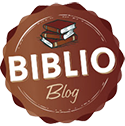



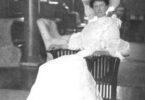
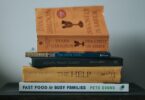
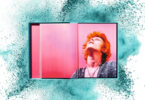
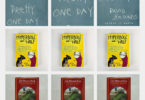
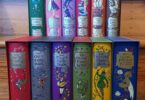
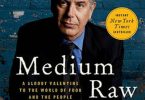
Thanks for sharing, I enjoyed reading these books